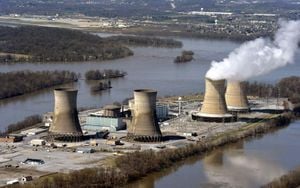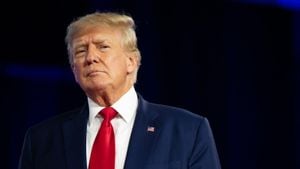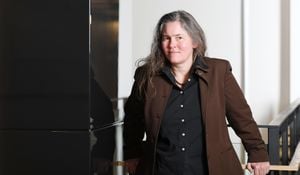Former Maryland Governor Martin O'Malley has officially kicked off his campaign to chair the Democratic National Committee (DNC), marking the first major step for the party as it seeks to regroup following disappointing election results. O'Malley, who served as governor from 2007 to 2015 and previously as the mayor of Baltimore, announced his candidacy on November 18, 2024, as many Democrats express the need for new leadership and direction.
His entry signals the beginning of what is expected to be a significant contest for the DNC chair, especially as the Democratic Party grapples with its status following the recent elections, where they lost control of the White House and both chambers of Congress. With these losses, party members have engaged in deep self-reflection and debate over the future path they should take.
O'Malley has positioned himself as the candidate of change, emphasizing the importance of connecting the party's mission to the everyday realities faced by families across America. "We must connect our Party with the most important place in America — the kitchen table of every family’s home. Jobs, Opportunity, and Economic Security for all. Getting things done. Hope. A 50 state strategy. Now," he stated across his social media platforms, underlining his grassroots approach.
Currently serving as the commissioner of the Social Security Administration, O'Malley will officially resign from his position, effective November 29, 2024, to focus on his candidacy. This move reflects his commitment to leading the party again, having previously run for DNC chair back in 2016, only to withdraw shortly after entering the race. He described himself as "a proven operational leader and turnaround manager" and stressed the necessity of conducting thorough after-action reports to understand what went wrong for the Democrats this election season.
O'Malley is expected to present a vision rooted not only in the aftermath of election analysis but also focused on building out the party’s infrastructure across the entire country, rather than just campaign-heavy battleground areas. This is reminiscent of Howard Dean's famous 50-state strategy, which O'Malley believes would strengthen Democratic presence nationwide.
He has already garnered some endorsements, with support from key party leaders, and is actively courting others to build momentum for his candidacy. Conversations with influential figures such as Maryland Sen. Chris Van Hollen and Rep. Jamie Raskin reflect his proactive strategy to rally support.
"We face enormous challenges and need to engage with voters on economic realities and other issues rather than succumbing to politics of fear," O'Malley explained, addressing the criticisms aimed at the party’s recent messaging. He noted the necessity for the party to communicate transparently and efficiently with all demographics, implying a need for adaptability to modern ways of communication.
While he formally declared his candidacy, numerous potential contenders are also considering their own bids for the DNC chair position. Among those mentioned are former Chicago Mayor Rahm Emanuel, current Wisconsin Democratic Party Chair Ben Wikler, and Ken Martin, the president of the Association of State Democratic Chairs.
Wikler, who has earned respect from both sides of the aisle as a significant fundraiser, is reportedly considering his options seriously, as are several state party chairs who might jump at the chance for such leadership roles. Martin is another name stirring interest, especially due to his potential support based on party dynamics.
O'Malley's former DNC predecessors, including Jaime Harrison, who is unlikely to seek additional terms following this month’s elections, will be stepping aside as the new chair is chosen among approximately 447 voting DNC members. Relationships among these members, as O'Malley knows well, often determine the outcome of such elections more than campaign rhetoric or even the popular vote.
This candidacy announcement not only signals O'Malley's return to the forefront of Democratic politics but also ignites discussions about the party’s future. With so many voices advocating for interpretations of election tragedies and next steps, O'Malley hopes to stake his claim as the leader who can guide the party toward unity and effective outreach.
If successful, O'Malley intends to focus on building bridges within the party and with voters, ensuring every corner of the country is represented and engaged. The upcoming election for the DNC chair is expected to take place early next year, and as the race heats up, key players from all sides will be watching closely.
Despite the chaotic backdrop of reflected losses, O'Malley remains optimistic about the importance of unity and the hopeful resurgence of the Democratic Party. Whether he can maintain his momentum and join the ranks of successful DNC chairs remains to be seen, but his experience and roots within the party provide him with both credence and resilience as he embarks on this competitive race.



